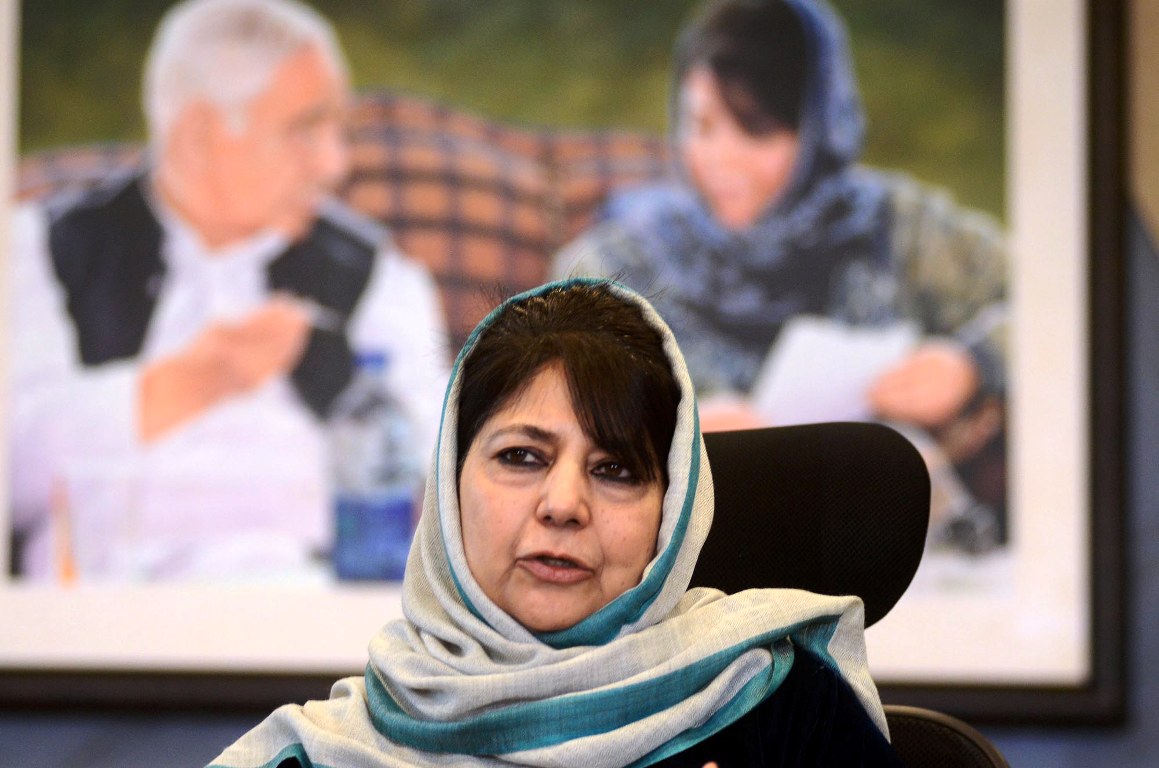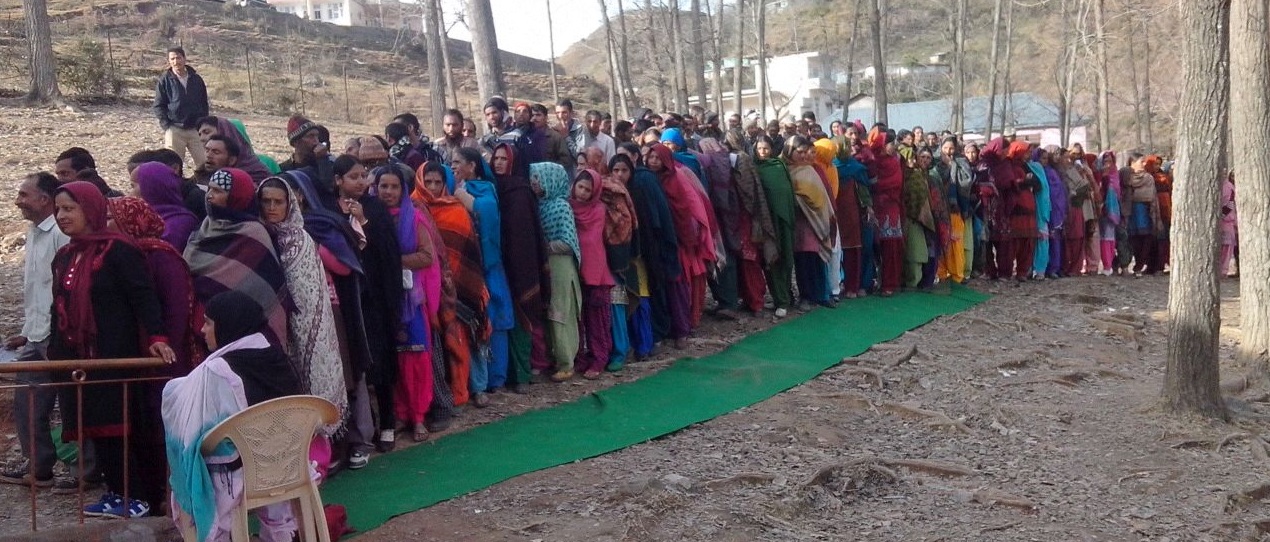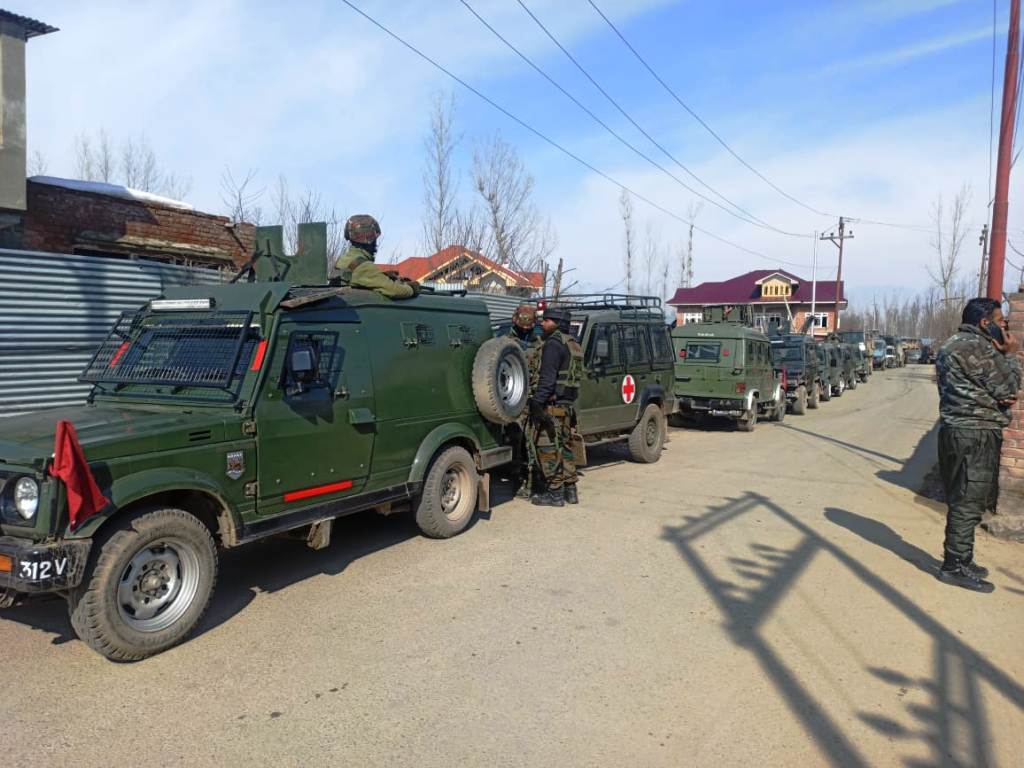Srinagar
Perceived resentment among Jammu’s Hindu voters over spiralling violence in the valley and “favouritism” towards Muslim-majority Kashmir made BJP, in consultation with RSS, break its ruling alliance with PDP, to give itself time to woo Hindu voters across the country, including those in Jammu, before general polls, reported CNN News 18.
The aim was to give “government room to manoeuvre to restore stability and rebuild Hindu confidence as well as burnish the party’s nationalist credentials among Hindu voters in the rest of India,” a book on RSS titled ‘RSS: A View to the Inside’ published by Penguin claims.
“Escalating violence in Kashmir and a perceived favouritism towards the Muslim-majority Kashmir Valley were eroding the confidence of Hindus in the Mehbooba Mufti government. The RSS’ information-gathering apparatus would have picked up on the growing restiveness of the Hindu community,” the authors Walter K Anderson and Shridhar Damle claim in the book.
They add, “With the general elections fast approaching, the national leadership, in consultation with the RSS and others, decided to withdraw from the alliance and impose Governor’s rule…The BJP, with support limited to the Jammu region, can only come back to power by working out another alliance with a party that draws much, if not all, of its support from the state’s Muslim majority.”
CNN News 18 quoted Ram Madhav, a key architect of the coalition with PDP, saying that the reasons for doing so were a failure to observe a ceasefire during Ramzan, deteriorating law and order, “discrimination” to Jammu and Ladakh, and the murder of Shujaat Bukhari. The same reasons were given by BJP president Amit Shah in a rally held in Jammu four days later.
The book also provides an explanation on why RSS gave its nod to BJP allying with PDP in the first place.
‘RSS: A View to the Inside’ claims that RSS gave its nod to BJP’s alliance with PDP, its ideological antithesis, only because doing this would draw “India’s only Muslim-majority state more closely into the Indian Union”.
“The decision was part of RSS’s plans to make itself more appealing to members of upwardly mobile social groups, and the fact that Modi seemed to be fond of Mufti Mohammad Sayeed clinched the deal,” CNN News 18 reported.
“A sceptical RSS had gone along with the proposed alliance in 2015 for larger strategic reasons such as strengthening national integration (i.e., drawing India’s only Muslim-majority state more closely into the Indian Union) and making Hindutva more inclusive (i.e., including the state’s Muslim majority — and, by extension, Muslims everywhere in India).”
The book claims even a “sacrosanct Hindu nationalist doctrine — such as the abolition of Article 370” was set aside, in the Common Minimum Programme that BJP and PDP jointly drafted as their mutually agreed to guide document just after announcing their coalition, because “the RSS in Jammu and Kashmir was forced to balance the narrow interests of the state’s Hindu minority with its strategic imperative of integrating Kashmir into the Indian Union”.
Another reason for giving a go-ahead to the BJP to forge an alliance with the PDP was because “RSS also wanted to project a more inclusive image — one that would make the organization appealing to members of upwardly mobile social groups”.
The decision of the RSS to back the alliance with the PDP, CNN News 18 quoted the authors as saying, “was another demonstration of its support for the BJP’s ambitions to represent all parts of the country…and to draw the state’s Muslims more closely into the national mainstream”.















